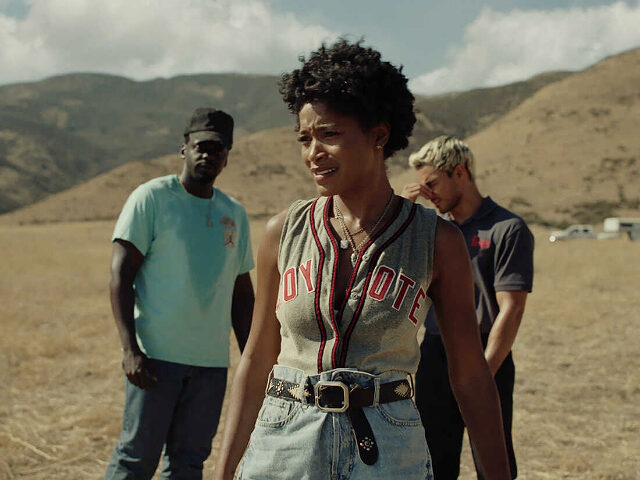Writer and director Jordan Peele continues to prove himself as a real-deal filmmaker. His third feature, Nope, is another highly-original crowd-pleaser.
Peele burst on the scene in 2017 with the horror film Get Out, a critical and box office smash that earned him a Best Original Screenplay Oscar.
Two years later, he had another hit with Us, a terrifying thriller about a family hunted by their doppelgangers.
Both Us and Get Out did what horror movies do best: wrapped their mayhem in social allegory. Get Out was the most obvious in its attack on the last remaining enclave of American racism: condescending white liberals. Us was a slightly more subtle look at class structure, the luck of the genetic draw regarding social status, and the fine line between civilization and anarchy.
Outside of his talents as a writer and uncanny skill with a camera, Peele’s greatest strength has been avoiding the trap of “woke.” Peele has a social conscience and plenty to say about many things, but he manages to say it while treating his audience as adults and partners instead of children and bigots.
Nope explores two separate themes. The obvious one is the dangers of attempting to civilize and tame that which is inherently wild. The subtle and more satisfying theme explores society’s increasing addiction to the camera and celebrity.
Watch below:
After his father (the great Keith David) is killed in a bizarre metal storm, OJ Haywood (Oscar-winner Daniel Kaluuya) is left in charge of a desert ranch that raises and trains horses for Hollywood movies and television. OJ just wants to keep the ranch going. His mouthy sister Emerald (Keke Palmer) is more interested in fame and fortune.
Things are desperate, and OJ is forced to sell off his horses one at a time to Jupe (Steven Yuen), a former child actor who has set up an Old West carnival called Jupiter’s Claim. Jupe is famous for starring in a popular 90’s sitcom that starred a chimp named Gordy. The show was canceled in the middle of season two. Not due to low ratings, but a terrifying massacre we witness in flashback. Rather than deal with the trauma of what he witnessed, Jupe uses Jupiter’s Claim to exploit it. Nevertheless, as he brags about the terrible incident’s important place in popular culture, his eyes betray the emotional damage he can’t yet acknowledge.
Emerald likes what Jupe has done, how he profits off a pop culture moment that captured the public imagination, even if it was a terrible one. So, when strange and dangerous things happen at the Haywood Ranch, she convinces OJ its better to capture it on film than to run.
What Emerald wants is what she calls “the Oprah Shot,” that photo or piece of video that means TV appearances and money in the bank.
From there, the plot revolves around the attempt to secure the “Oprah Shot” and to uncover just what exactly this thing is.
While Get Out, and Us were straight-up horror, other than the stuff involving the chimp (which is pretty intense), Nope is much closer to Spielberg’s Close Encounters of the Third Kind (1977) and Shyamalan’s Signs (2002). Sometimes scary, sometimes exhilarating, frequently funny, and always a feast for the eyes. Nope is pure sci-fi spectacle—never boring, a little longer than necessary, a bit indulgent, but very original and eager to entertain.
Follow John Nolte on Twitter @NolteNC. Follow his Facebook Page here.

COMMENTS
Please let us know if you're having issues with commenting.